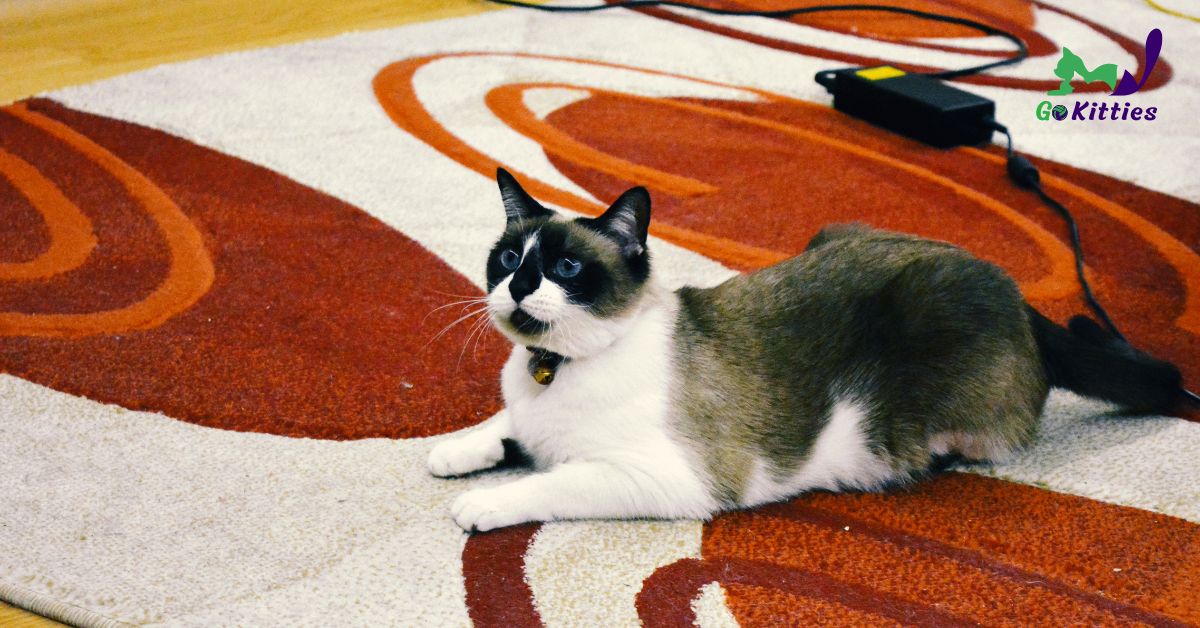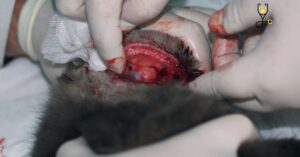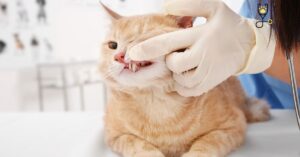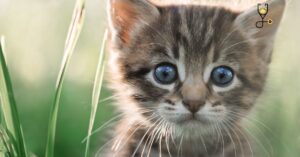If you’re an animal lover, then you’re probably familiar with the domesticated cat. Cats come in all shapes and sizes, from the traditional long-haired Persian to the exotic Somali. But did you know there’s a type of cat that can thrive in cold weather conditions? The snowshoe cat is a unique breed that originated in the United States. Let’s take a closer look at this fascinating feline!
Breed Synopsis And Characteristics
-Height: 10-15 inches
-Weight: 8-12 pounds
-Coat: Short to medium length, thick and silky
-Color: Blue, silver, black, brown, or tortoiseshell
-Eyes: Large and oval shaped
-Life expectancy: 14-16 years
-Temperament: Active, playful, curious, affectionate
-origin: United States
-Purpose: Companion animal
-Diet: High-quality dry food and wet food

- The snowshoe cat is a medium-sized breed that is known for its thick, silky coat.
- These cats are very active and playful, and they enjoy being around people.
- They are also curious about nature and love to explore their surroundings.
- Snowshoe cats are affectionate towards their owners and they make a great companion animals.
Common Health Problems Of Snowshoe Cats
The snowshoe cat is generally a healthy breed, but there are some health problems that are associated with this breed.
-Hip dysplasia: This is a condition that causes the hip joint to develop abnormally. It can be painful and may cause lameness.
-Patellar luxation: This is a condition that causes the kneecap to dislocate. It can be painful and may cause lameness.
-Polycystic kidney disease: This is a condition that causes the development of cysts in the kidneys. It can lead to kidney failure.
-Gastrointestinal problems: Snowshoe cats may suffer from gastrointestinal problems such as vomiting and diarrhea.

Caring For A Snowshoe Cat
If you’re thinking of adding a snowshoe cat to your family, there are a few things you need to know about caring for this breed.
-Provide a litter box: Snowshoe cats should have their own litter box. Be sure to clean the litter box regularly.
-Feed a high-quality diet: Snowshoe cats should be fed a high-quality diet that is rich in protein and fat. Wet food is also an important part of their diet.
-Groom your cat: Snowshoe cats should be brushed weekly to remove any dead hair and to keep their coat healthy.
-Provide plenty of toys: Snowshoe cats need plenty of toys to keep them entertained. Be sure to provide them with a scratching post as well.
-Take your cat to the vet: Snowshoe cats should see the vet at least once a year for a wellness exam.

Feeding Your Snowshoe Cat
Snowshoe cats should be fed a high-quality diet that is rich in protein and fat. Wet food is also an important part of their diet. You can feed your snowshoe cat a commercial diet or you can make your own homemade food. If you choose to make your own food, be sure to include all the essential nutrients that your cat needs. When selecting a food for your snowshoe cat, be sure to read the ingredient list carefully. The first ingredient should be meat, not corn or wheat. You should also avoid foods that contain artificial colors, flavors, or preservatives.
What Are The Best Foods For Snowshoe Cats?
-Raw meat: Raw meat is an excellent source of protein and fat for snowshoe cats.
-Fish: Fish is a good source of protein and omega-3 fatty acids, which are beneficial for the skin and coat.
-Eggs: Eggs are a good source of protein and they contain all the essential amino acids that cats need.
-Canned food: Canned food is a good option for snowshoe cats. Be sure to choose a food that is high in protein and low in carbohydrates.
-Homemade food: You can make your own homemade food for snowshoe cats. Be sure to include all the essential nutrients that your cat needs.
Where to Adopt or Buy a Snowshoe Cat?
If you’re interested in adding a snowshoe cat to your family, there are a few things you need to know about where to adopt or buy one.
-Adopt from a shelter: There are many snowshoe cats in shelters that are looking for their forever homes. When adopting a cat from a shelter, be sure to have the cat examined by a veterinarian.
-Buy from a breeder: If you want to buy a snowshoe cat from a breeder, be sure to find a reputable breeder who can provide you with healthy kittens.
-Adopt from an individual: You can also adopt snowshoe cats from individuals who are looking to rehome their cats. Be sure to have the cat examined by a veterinarian before you adopt.

Conclusion
If you’re looking for a unique and beautiful cat, the snowshoe cat may be the perfect choice for you. These cats are loving and affectionate, and they make great companions. When caring for a snowshoe cat, be sure to provide them with a litter box, a high-quality diet, plenty of toys, and regular vet care.
Frequently Asked Questions
1. Is a Snowshoe Cat the Right Pet for Me?
If you’re looking for a unique and beautiful cat, the snowshoe cat may be the perfect choice for you. These cats are loving and affectionate, and they make great companions. When caring for a snowshoe cat, be sure to provide them with a litter box, a high-quality diet, plenty of toys, and regular vet care.
2. What Are the Different Types of Snowshoe Cats?
There are three different types of snowshoe cats: traditional, pointed, and mink. Traditional snowshoe cats have white fur with black spots. Pointed snowshoe cats have white fur with black points (or “tuxedo” markings). Mink snowshoe cats have brown or gray fur with black points.
3. What Do Snowshoe Cats Look Like?
Snowshoe cats are medium-sized cats with white fur and black points (or “tuxedo” markings). They have large, round eyes and their ears are slightly pointed. Their tails are long and they have four white paws.
4. How Big Do Snowshoe Cats Get?
Snowshoe cats are medium-sized cats. They typically weigh between 8 and 12 pounds.
How Long Do Snowshoe Cats Live?
Snowshoe cats typically live for 10 to 15 years.
5. Do Snowshoe Cats Shed?
Yes, snowshoe cats do shed. Be prepared to vacuum regularly to keep your house clean.







